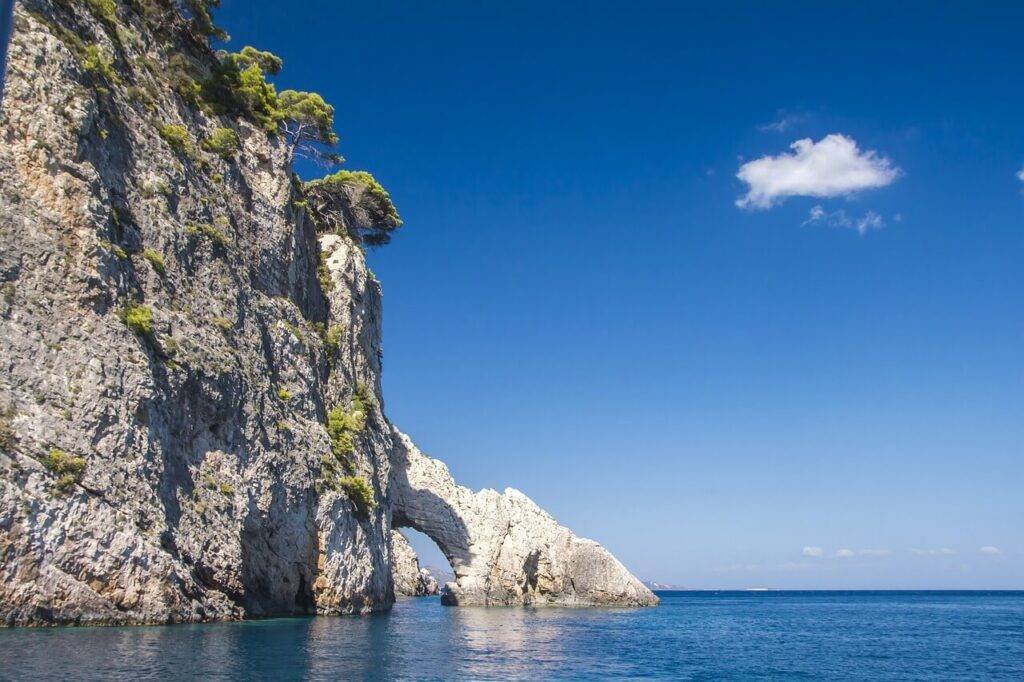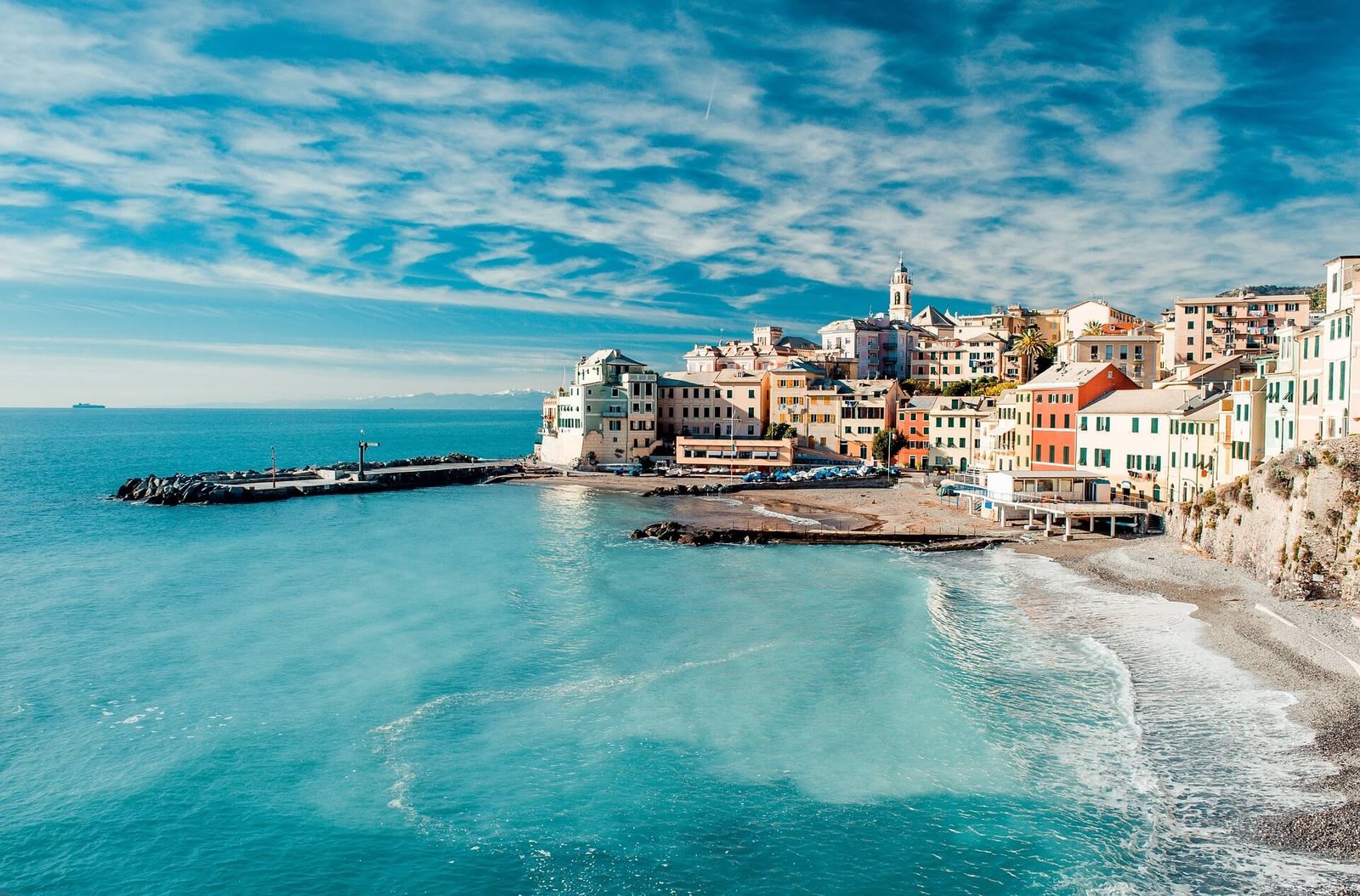A Practical Guide on How to Plan a Trip to Greece
Introduction:
Greece is like a magical mixtape of the past and now, serving up adventures you won’t find anywhere else. Imagine wandering among old ruins that whisper tales of ancient times, gazing at breathtaking views that look like they’re straight out of a painting, or dipping your toes in the kind of blue waters you see in postcards.
Greece is a bucket-list destination for many travelers. It is known for its stunning islands, ancient history, and delicious cuisine. However, planning a visit can be intimidating when there are many destinations, attractions, travel options, and travel experiences to consider.
This guide on How to Plan a Trip to Greece offers all this essential information and will ensure a rewarding travel experience in Greece!

Best Time To Visit
Greece can be visited annually, depending on your travel preferences and priorities. If you want the weather just right, not too hot, not too crowded, and Greece looking its absolute best, aim for springtime between April and June, or fall from September to November.
The peak tourist season runs from June to August with its hot temperatures, crowded beaches, and higher prices. You can consider visiting in April-May or September-October for cooler temperatures with smaller crowds. Winter can also provide excellent skiing and cultural events as many tourist attractions close down during these months.
How to Reach Greece:
Most travelers arrive in Greece via airplane, with Athens International Airport as their primary entryway. Other major airports include Thessaloniki, Rhodes, and Heraklion being significant hubs.
You may take a ferry from neighboring countries directly into Greece from Italy, Turkey, or Croatia; otherwise, within Greece, car, bus, or train transportation can provide easy transportation options depending on your itinerary and budget.

Visa and Entry Requirements:
Residents of European Union countries and some other nations don’t require a visa to visit Greece for stays up to 90 days. Others may need to obtain a Schengen visa which enables travel within this area.
Visa application usually involves filling out an online form, providing supporting documents and paying a fee. You will also require valid travel insurance and sufficient funds for your stay.
Greece offers much to discover, from ancient ruins and idyllic islands to charming villages. While popular destinations may include Athens, Santorini, Mykonos, Crete, and Rhodes, lesser-known ones may also warrant exploring.
When planning your itinerary in Greece, keep your interests, budget, and time constraints in mind and be realistic with your plans.
Deciding Your Destinations
Deciding between Greece’s mainland with its amazing history and the beautiful Greek islands is tough. Athens has famous places like the Acropolis and the old Plaka area. But islands like Santorini, Mykonos, and Crete have their own special looks and ways of life. Every place in Greece has something special, from the stunning Meteora monasteries to the clear beaches of the Ionian and Aegean seas.
Budgeting Your Greek Journey
Going to Greece can work for all kinds of spending plans. The prices change a lot between the main part of Greece and the islands, and also depend on what time of year you go. If you want to enjoy your trip without spending too much money, try to travel in the shoulder season.
This season starts soon after or before the busiest season. It’s also smart to book your places to stay and flights early. Planning how much money you’ll use each day for food, getting around, and fun things to do can help you keep track of your spending.

Accommodation Options in Greece:
Greece has all kinds of places to stay, from fancy hotels to cozy bed and breakfasts. It’s really important to book early, especially in places a lot of people want to visit at the same time.
In Greece, you’ve got all sorts of places to sleep over, from super fancy hotels to cozy little places where you get breakfast in bed. If you’re planning to visit when everyone else wants to, better call dibs on your room early!
And hey, if you choose to stay at a spot run by locals, you’re not just getting a place to crash, but you’re also helping out the folks there. And it’s way cooler to say you lived like a real Greek for a bit, isn’t it?

Deciding Your Destinations
Choosing between the mainland’s rich historical sites and the idyllic beauty of the Greek islands can be challenging. While Athens boasts landmarks like the Acropolis and the historic Plaka district, islands such as Santorini, Mykonos, and Crete offer unique landscapes and cultures.
Each destination within Greece has its allure, from the breathtaking Meteora monasteries to the pristine beaches of the Ionian and Aegean seas.
Greek Culinary Adventure
Greek food is a big part of visiting Greece because it uses fresh stuff and tastes great. Make sure to try local dishes like moussaka, souvlaki, tzatziki, and feta cheese and fresh seafood. Eating street food is a tasty and cheap way to enjoy Greek flavors.
Also, eating at traditional taverns can give you a fuller experience of Greek dining. You can also try some other must-eats seafood salads with local wines and platters from restaurants or tavernas selling local specialties
Activities and Experiences in Greece:
Greece has something for everyone, whether your passion lies in history, culture, nature, or adventure. Some of its top attractions include Acropolis, Parthenon, Delphi oracle, and Meteora monasteries. You can also participate in outdoor activities like hiking, cycling, sailing, and scuba diving!
Explore ancient landmarks and archaeological sites:
Greece is famous for its long and storied history, featuring iconic landmarks like the Acropolis of Athens, Temple of Olympian Zeus, Delphi Archaeological Site, and Ancient Theatre of Epidaurus that offer visitors an intriguing peek into its fascinating past.
Greek cuisine is famed for its fresh ingredients, flavourful herbs and spices, and delicious dishes – such as moussaka, gyros, souvlaki, and Greek salad – that will tantalize your palate! Don’t miss out! Indulge now!
Greece boasts some of the world’s most breath-taking beaches. Explore Mykonos, Santorini, or Crete for crystal-clear waters and white sandy beaches.
You must try the below activities, if you are in Greece
Exploit the vibrant nightlife:
Greece is well-known for its lively nightlife scene. Visit Athens or Mykonos to enjoy world-famous clubs and bars.
Hike and Explore Nature:
Greece boasts stunning natural beauty. Explore Samaria Gorge on Crete, Vikos Gorge in Zagori, or Mount Olympus for breathtaking vistas.

Wine Tour:
Greece is home to some of the oldest vineyards in the world. Take a wine tour around Santorini or Nemea to sample some of Greece’s best wines and experience an unforgettable wine journey!
Attend a festival or event:
Greece is well-known for its lively festivals and events, such as the Athens and Epidaurus Festival, the Carnival of Patras, and the Athens Marathon. Take an immersive journey through Greek culture and traditions by attending one of these festivities or events!
Greece is sure to offer something for every interest imaginable, so plan and book activities well in advance for maximum enjoyment on your visit.
Must Do Preperations
Packing Essentials for Greece
When packing for Greece, get ready for different kinds of activities. Bring light clothes for hot days, good shoes for walking on old ruins and rocky streets, and some warmer clothes for cold nights. Also, remember to take sunscreen, a hat, and a travel guidebook.
Language and Communication
Lots of people in Greece speak English, especially where tourists go, but knowing a little Greek can make your trip better. Saying “Kalimera” (Good morning) and “Efharisto” (Thank you) shows you respect their culture and can make talking with locals more fun.
Cultural Etiquette and Tips
Understanding and respecting local customs and etiquette will enrich your travel experience in Greece. Simple gestures like greeting locals in Greek, dressing modestly in religious sites, and being mindful of siesta times can go a long way in showing respect for Greek culture.
Tips for How to Plan a Trip to Greece
- Choose the right time to visit Greece
- Book your accommodation in advance
- Plan your itinerary and prioritize your must-see sights
- Consider purchasing a multi-day island-hopping ferry pass
- Be mindful of transportation options and schedules
- Pack accordingly for the weather and activities planned
- Learn basic Greek phrases for communication
- Be respectful of local customs and traditions
- Be prepared for higher prices during peak tourist season
- Bring cash for small purchases and tipping
- Purchase travel insurance to protect your trip
- Keep important documents and copies safe
- Stay hydrated and use sunscreen during the summer months
- Bring comfortable shoes for walking and hiking
- Research local events and festivals for unique experiences
- Don’t hesitate to ask locals for recommendations and tips
- Take advantage of free walking tours in major cities
- Consider hiring a local guide for more personalized experiences
- Be mindful of safety precautions and avoid risky behavior
- Take breaks and rest when needed to prevent burnout

How to Plan a Trip to Greece
Getting ready for your trip to Greece means thinking about where you want to go, how much you want to spend, where you’ll stay, and what you’ll do. First, decide what’s most important to you, like visiting old ruins, relaxing on beaches, or getting to know the local way of life. Then, plan your trip step by step, book your places to stay, and get ready for an unforgettable adventure.
Before You Go: Final Checklist
Before you head off to Greece, make sure you have all the important papers you need, like a passport that’s still good and any visas. Go over your packing list again, make sure your places to stay and how you’re getting around are all set, and get ready for a trip you’ll always remember.
Conclusion
Greece is an iconic travel destination, boasting something for every traveler. It is no wonder why many choose Greece as their bucket list destination because of its rich history, stunning natural beauty, delicious food, and warm hospitality.
Following this guide on How to plan a trip to Greece steps to planning an itinerary tailored to suit your interests and budget. This will give you the best chance at experiencing all this stunning nation has to offer! So, pack up and get ready to share its wonders!
Frequently Asked Questions:
Q: What is the ideal time and place for me to visit Greece?
A: For optimal travel to Greece, April to June and September to November offer mild temperatures with smaller crowds; July and August are peak tourist seasons when heat and humidity become an issue.
Q: What currency is used in Greece? Greece uses the Euro (EUR).
A: Do I Need a Visa to Travel to Greece? Citizens of the European Union, US, CA, AUS, or NZ do not require a visa to visit Greece for up to 90 days at any one time; other nationalities should check before booking their trip.
Q: How can I best navigate Greece?
A: For optimal travel around Greece, rental cars, public transportation, and taxi services are your best bets; island-hopping ferry rides may also provide convenient transport between islands.
Q: Are You Traveling To Greece Safely?
A: Greece is generally safe for travel; however, as with any destination, it’s wise to take precautions to safeguard your safety. Be mindful of where your belongings are kept when walking around at nighttime; also, be wary of poorly lit areas where possible and remain alert of your surroundings.
Q: Is travel insurance necessary for Greece?
A: Yes, it’s a good idea to have travel insurance when you go to Greece. It can help pay for things you didn’t plan for, like if you need to see a doctor, if your bags get lost, or if you have to cancel your trip.
Even though it’s not a must to have it by law, having insurance can make you feel more relaxed, letting you have fun on your trip without stressing over the “what ifs.”
Q: Which Greek foods should I try?
A:
- Moussaka – A tasty casserole made with layers of eggplant, minced meat, and a creamy béchamel sauce on top.
- Souvlaki – Grilled meat (often pork or chicken) served on a skewer or in a pita with vegetables and sauces.
- Tzatziki – A refreshing dip made from yogurt, cucumber, garlic, and olive oil, perfect with bread or grilled meats.
- Greek Salad – A fresh salad with tomatoes, cucumbers, onions, olives, feta cheese, and olive oil.
- Spanakopita – A savory pastry filled with spinach and feta cheese.
- Gyros – Similar to souvlaki, gyros is meat cooked on a rotisserie and served in a pita with tzatziki, onions, and tomatoes.
- Baklava – A sweet dessert made of layers of filo pastry, filled with chopped nuts and sweetened with honey or syrup.
- Dolmadakia (Dolmas) – Grape leaves stuffed with rice and herbs, sometimes with meat, served with lemon.
- Pastitsio – A baked pasta dish with layers of pasta, minced meat, tomato sauce, and béchamel sauce.
- Frappe – A frothy iced coffee drink, perfect for hot days.

Thank you for reading our blog on How to Plan a Trip to Greece till the end


7 thoughts on “How To Plan A Trip To Greece – Best Greece Vacation Planner”